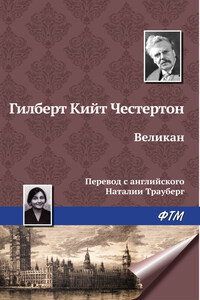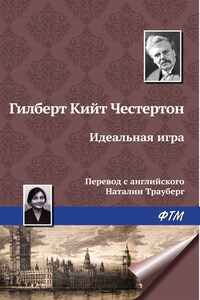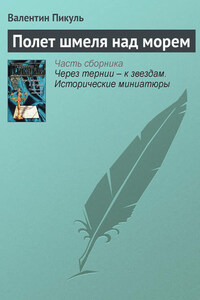A Chancery Judge once had the kindness to inform me, as one of a company of some hundred and fifty men and women not labouring under any suspicions of lunacy, that the Court of Chancery, though the shining subject of much popular prejudice (at which point I thought the Judge's eye had a cast in my direction), was almost immaculate. There had been, he admitted, a trivial blemish or so in its rate of progress, but this was exaggerated, and had been entirely owing to the 'parsimony of the public'; which guilty public, it appeared, had been until lately bent in the most determined manner on by no means enlarging the number of Chancery Judges appointed – I believe by Richard the Second, but any other King will do as well.
This seemed to me too profound a joke to be inserted in the body of this book, or I should have restored it to Conversation Kenge or to Mr Vholes, with one or other of whom I think it must have originated. In such mouths I might have coupled it with an apt quotation from one of Shakespeare's Sonnets:
My nature is subdued
To what it works in, like the dyer's hand:
Pity me then, and wish I were renew'd!
But as it is wholesome that the parsimonious public should know what has been doing, and still is doing, in this connexion, I mention here that everything set forth in these pages concerning the Court of Chancery is substantially true, and within the truth. The case of Grindley is in no essential altered from one of actual occurrence, made public by a disinterested person who was professionally acquainted with the whole of the monstrous wrong from beginning to end. At the present moment there is a suit before the Court which was commenced nearly twenty years ago; in which from thirty to forty counsel have been known to appear at one time; in which costs have been incurred to the amount of seventy thousand pounds; which is a friendly suit] and which is (I am assured) no nearer to its termination now than when it was begun. There is another well-known suit in Chancery, not yet decided, which was commenced before the close of the last century, and in which more than double the amount of seventy thousand pounds has been swallowed up in costs. If I wanted other authorities for Jarndyce and Jarndyce, I could rain them on these pages, to the shame of– a parsimonious public.
There is only one other point on which I offer a word of remark. The possibility of what is called Spontaneous Combustion has been denied since the death of Mr Krook; and my good friend Mr. Lewes (quite mistaken, as he soon found, in supposing the thing to have been abandoned by all authorities) published some ingenious letters to me at the time when that event was chronicled, arguing that Spontaneous Combustion could not possibly be. I have no need to observe that I do not wilfully or negligently mislead my readers, and that before I wrote that description I took pains to investigate the subject. There are about thirty cases on record, of which the most famous, that of the Countess Cornelia de Bandi Cese-nate, was minutely investigated and described by Giuseppe Bianchini, a prebendary of Verona, otherwise distinguished in letters, who published an account of it at Verona, in 1731, which he afterwards republished at Rome. The appearances beyond all rational doubt observed in that case, are the appearances observed in Mr Krook's case. The next most famous instance happened at Rheims, six years earlier; and the historian in the case is LE CAT, one of the most renowned surgeons produced by France. The subject was a woman, whose husband was ignorantly convicted of having murdered her; but, on solemn appeal to a higher court, he was acquitted, because it was shown upon the evidence that she had died the death to which this name of Spontaneous Combustion is given. I do not think it necessary to add to these notable facts, and that general reference to the authorities which will be found at page 429, the recorded opinions and experiences of distinguished medical professors, French, English, and Scotch in more modern days; contenting myself with observing, that I shall not abandon the facts until there shall have been a considerable Spontaneous Combustion of the testimony on which human occurrences are usually received.
In Bleak House, I have purposely dwelt upon the romantic side of familiar things.
Dedicated, as a remembrance of our friendly union, to my companions in the guild of literature and art
Dedication of the 1853 edition
Charles Dickens
London. Michaelmas Term lately over, and the Lord Chancellor sitting in Lincoln's Inn Hall. Implacable November weather. As much mud in the streets, as if the waters had but newly retired from the face of the earth, and it would not be wonderful to meet a Megalosaurus, forty feet long or so, waddling like an elephantine lizard up Holborn Hill. Smoke lowering down from chimney-pots, making a soft black drizzle, with flakes of soot in it as big as full-grown snow-flakes – gone into mourning, one might imagine, for the death of the sun. Dogs, undistinguishable in mire. Horses, scarcely better; splashed to their very blinkers. Foot passengers, jostling one another's umbrellas, in a general infection of ill-temper, and losing their foot-hold at street-corners, where tens of thousands of other foot passengers have been slipping and sliding since the day broke (if this day ever broke), adding new deposits to the crust upon crust of mud, sticking at those points tenaciously to the pavement, and accumulating at compound interest.
Fog everywhere. Fog up the river, where it flows among green aits and meadows; fog down the river, where it rolls defiled among the tiers of shipping, and the waterside pollutions of a great (and dirty) city. Fog on the Essex marshes, fog on the Kentish heights. Fog creeping into the cabooses of collier-brigs; fog lying out on the yards, and hovering in the rigging of great ships; fog drooping on the gunwales of barges and small boats. Fog in the eyes and throats of ancient Greenwich pensioners, wheezing by the firesides of their wards; fog in the stem and bowl of the afternoon pipe of the wrathful skipper, down in his close cabin; fog cruelly pinching the toes and fingers of his shivering little 'prentice boy on deck. Chance people on the bridges peeping over the parapets into a nether sky of fog, with fog all round them, as if they were up in a balloon, and hanging in the misty clouds.
Gas looming through the fog in divers places in the streets, much as the sun may, from the spongy fields, be seen to loom by husbandman and ploughboy. Most of the shops lighted two hours before their time – as the gas seems to know, for it has a haggard and unwilling look.








